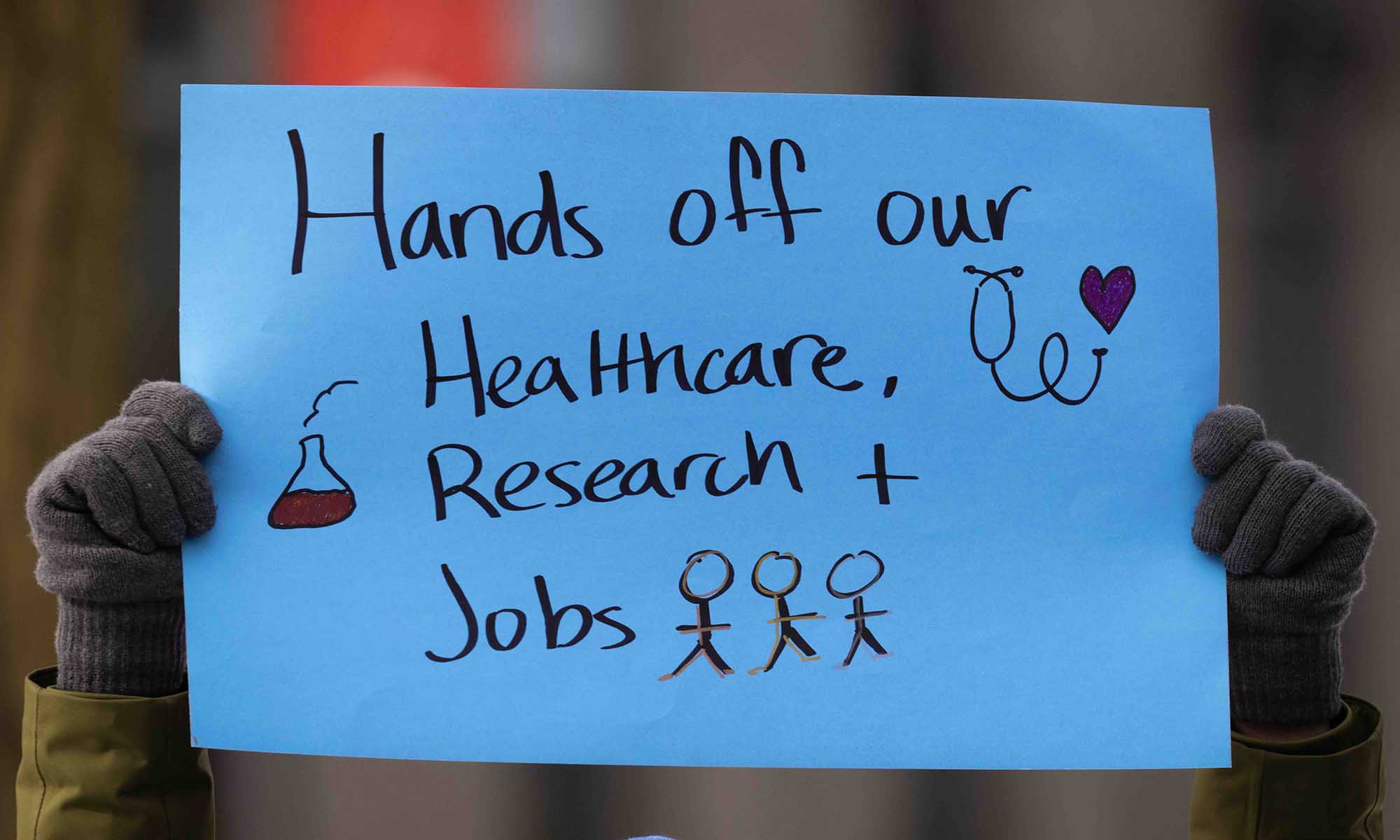Kathryn Mariner, an assistant professor of anthropology at Rochester, started planning The Social Life of Guns: Research Symposium more than a year ago, well before the Parkland school shooting and the March for Our Lives demonstrations around the country on March 24.
“The symposium was timely because of those events, but it also would have been timely right after the Fort Hood Shooting in 2009 and any number of gun-related tragedies that have occurred over the years,” says Mariner.
Early in 2017, planning for the symposium started around the question of whether University security officers, employed by the Department of Public Safety, should carry firearms. “Little research has been done on the issue, and a few of the faculty here thought steps should be taken to collect the data that would help people make informed decisions,” says Mariner. “But topics were soon added to the agenda, which quickly broadened the mission of the symposium. As it turns out, there’s a dearth of research data on gun violence, in general.”
More than a dozen speakers—from Harvard, Johns Hopkins, and other major institutions around the country—addressed the two-day symposium, held at Rush Rhees Library. Jeffrey Swanson, a professor in psychiatry and behavioral sciences at Duke University School of Medicine, hopes the gathering leads to more work done in the area of firearms and mental illness. In his presentation, Swanson called the idea that people with mental health illness are dangerous “a barnacle” that’s encrusted in the public mind, despite a lack of evidence supporting that belief.
“More than 40 million Americans would meet the criteria for a psychiatric disorder, but the overwhelming majority of them are not violent toward others,” said Swanson.
Instead of taking guns away from those diagnosed with a mental disorder, Swanson supports an evidence-based policy that allows authorities to temporarily remove firearms when there’s good information that a person poses a risk to him or herself or to others. Swanson’s research shows the approach is working in at least one state, Connecticut, but he’d like to see research done to evaluate the success of temporary removal policies in other jurisdictions.
Caroline Light, a senior lecturer in Harvard’s women, gender, and sexuality program, addressed the symposium about what she calls the myth of the “good woman with a gun.” Light argued that the concept has roots in 18th-century captivity novels, which featured white, Christian women held against their will by indigenous men depicted as savages. Portrayed as unshakable in their beliefs, the women, according to Light, served as stand-ins for white, Christian America.
“The NRA characterizes white masculinity as the necessary protector of the white family,” she said. “We need to be better at calling out such gender and racialized images of aggression.”
Ziming Xuan, an associate professor of community health sciences at Boston University, addressed the implications of easy firearm access for youth suicides. He noted that about 40 percent of suicides among young Americans involve guns.
“If youth have access to guns, the risk of fatalities increases substantially,” he said. “That’s why it’s important to restrict gun access at a young age.”
Xuan joined the call for more research, saying there isn’t very much data to support many of the actions being taken, including those involving risk profiles and restraining policies.
Mariner notes that research on gun violence is already being carried out at higher education institutions around the country. Her hope now is that, as a result of symposia like The Social Life of Guns, studies will be more collaborative and interdisciplinary—and that there will be more of them.





